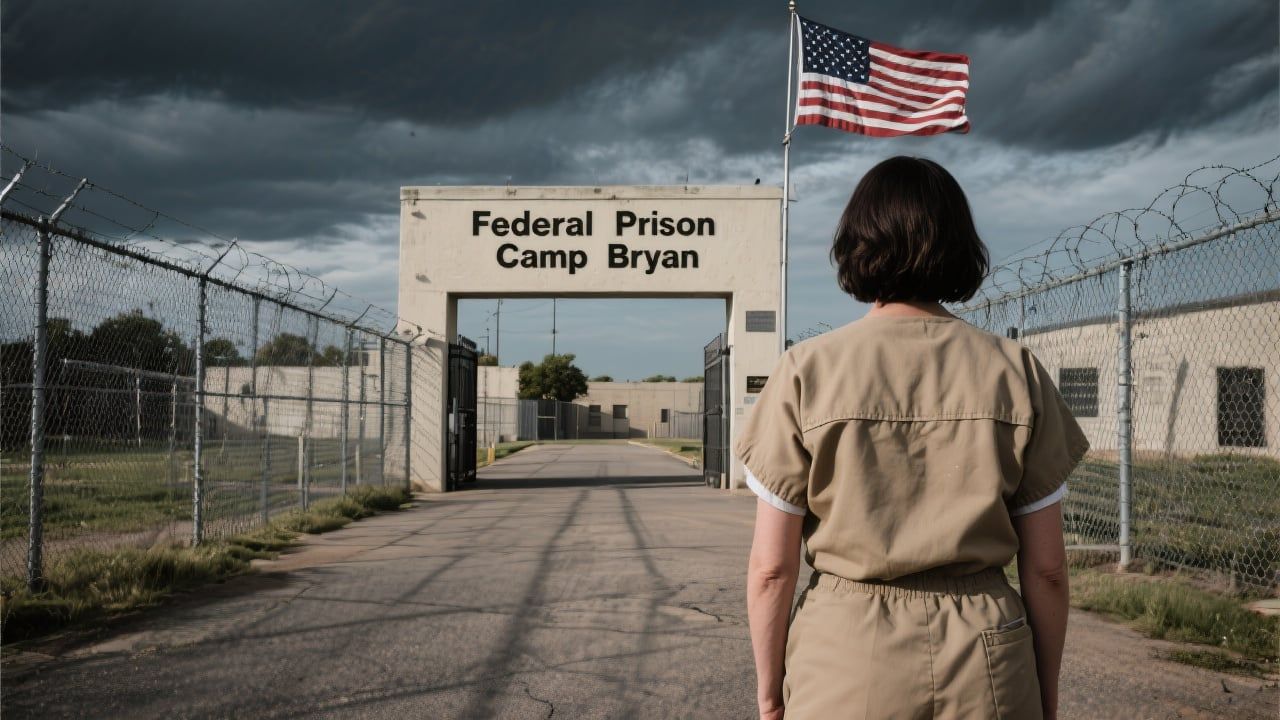
The Quiet Transfer That Was Anything But
Ghislaine Maxwell, the woman whose name is now inseparable from Jeffrey Epstein’s sprawling web of abuse, has been quietly moved from a Florida prison to a minimum-security federal camp in Bryan, Texas.
The move, confirmed by the Bureau of Prisons and Maxwell’s attorney, has ignited a fresh round of outrage, suspicion, and political theater—though, for those who have followed the Epstein saga, the only real surprise is how little transparency accompanied the decision.
From Razor Wire to Open Lawns
Maxwell, convicted in 2022 for her role in Epstein’s sex trafficking operation, had been serving her 20-year sentence at FCI Tallahassee, a low-security facility. Now, she finds herself at Federal Prison Camp Bryan, a place described by prison consultants as “Disneyland” compared to most federal lockups. There are no fences, the staff-to-inmate ratio is low, and the population is made up almost entirely of nonviolent female offenders. The same facility houses Elizabeth Holmes, the disgraced Theranos founder, and reality TV’s Jen Shah—an odd sisterhood of high-profile inmates whose crimes, while serious, are worlds apart in public imagination.
The transfer itself was handled with a level of discretion that only fueled the conspiracy machine. According to Newsweek, Maxwell’s move was managed directly by Bureau of Prisons officials, bypassing the usual U.S. Marshals Service protocol. She reportedly made a brief stopover in Louisiana before arriving in Texas, a detail that would be mundane if not for the context of her notoriety and the feverish speculation that follows her every move.
Why Now? The Timing and the Politics
The timing of Maxwell’s transfer is impossible to ignore. Just a week prior, she sat for a two-day interview with Deputy Attorney General Todd Blanche, a meeting shrouded in secrecy but described by her lawyer as “very productive.” The Justice Department, meanwhile, has been under bipartisan pressure to release more Epstein-related documents—a promise that has repeatedly been walked back, much to the frustration of victims and the public.
Maxwell is also scheduled to testify before Congress later this month, though only if granted immunity—a demand that has so far been rejected. Her legal team has made it clear: no immunity, no testimony. The House Oversight Committee, for its part, has postponed her deposition indefinitely, leaving the public to wonder what, if anything, will come of her willingness to talk.
Victims and Advocates: “This Is the Justice System Failing Victims”
The reaction from Epstein’s victims and their families has been swift and furious. Annie and Maria Farmer, along with relatives of the late Virginia Giuffre, issued a statement calling the move “the justice system failing victims right before our eyes.” They see Maxwell’s transfer to a so-called “Club Fed” as a slap in the face, a sign that the powerful and well-connected still play by different rules.
Prison consultants and legal experts have echoed their disbelief. It is exceedingly rare, they say, for someone convicted of sex offenses to be placed in a minimum-security camp. The optics are terrible, and the message to survivors is even worse.
The Broader Context: Conspiracy, Clemency, and the Shadow of Epstein
Maxwell’s transfer comes at a time when the Epstein case is once again a political football. President Trump, who has faced his own scrutiny over ties to Epstein, has publicly mused about his power to pardon Maxwell but insists no one has approached him about it. Meanwhile, the Justice Department’s refusal to release more Epstein files has only deepened public suspicion that the full story remains hidden.
Maxwell herself is not done fighting. She has petitioned the Supreme Court to overturn her conviction and continues to seek clemency, though no formal action has been taken. Her projected release date remains July 17, 2037, but in the world of high-profile federal inmates, nothing ever feels truly settled.
The Symbolism of a Prison Transfer
In the end, the story of Ghislaine Maxwell’s transfer is less about the logistics of incarceration and more about the enduring sense that justice, in cases involving the rich and powerful, is always a moving target. The open lawns of FPC Bryan may be a world away from the razor wire of Tallahassee, but for Maxwell’s victims, the sense of unfinished business remains as sharp as ever.
